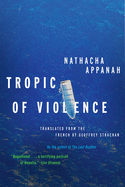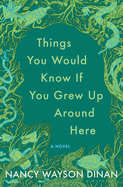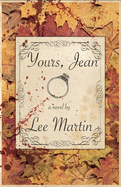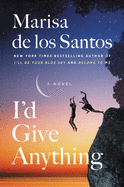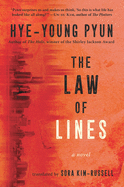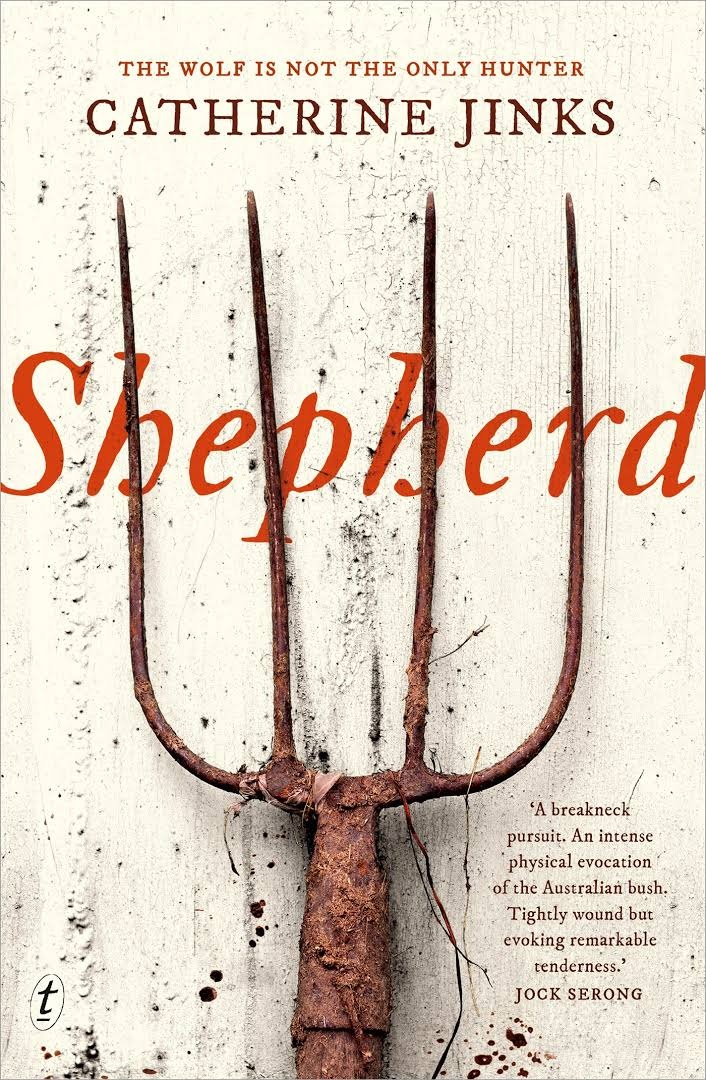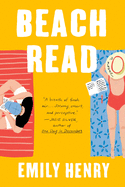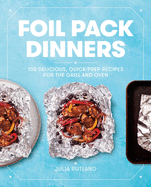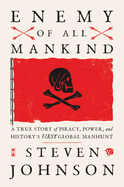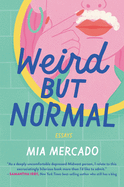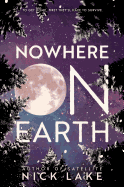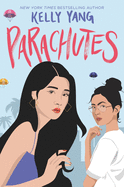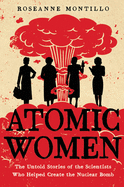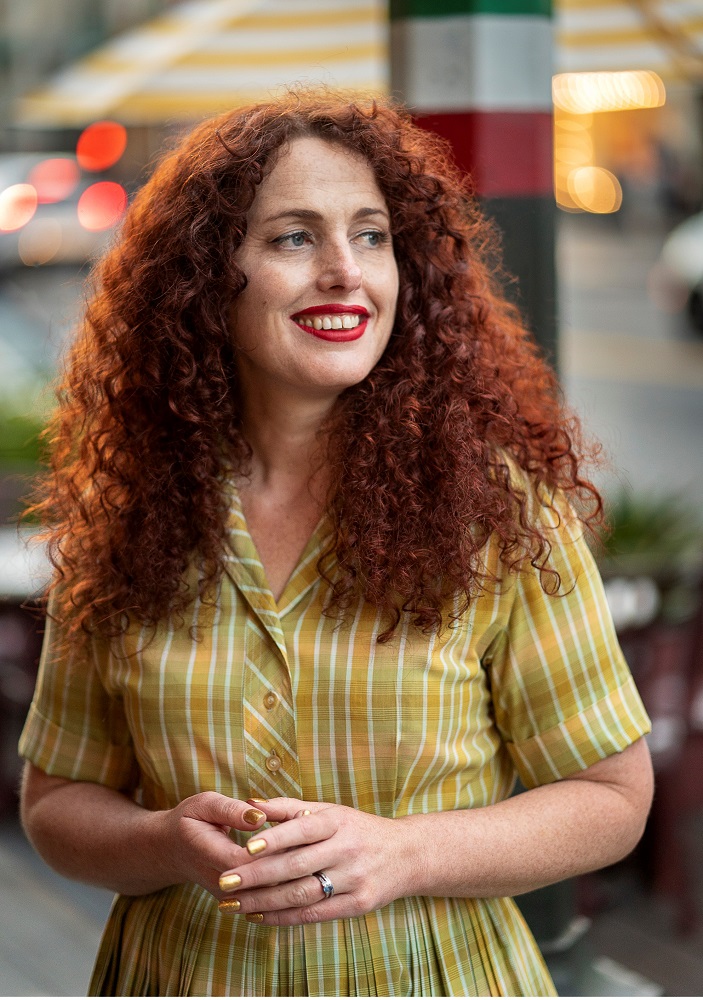 |
| photo: Dennis Hearne |
Home Baked: My Mom, Marijuana, and the Stoning of San Francisco (Houghton Mifflin Harcourt, $27) is Alia Volz's often hilarious memoir about growing up with her famous mother, who ran "Sticky Fingers Brownies," bringing joy to San Franciscans in the mid-1970s with her pot edibles. Eventually Meridy Volz provided medical marijuana to AIDS patients, leading California to groundbreaking cannabis legalization laws.
Part of the brilliance of Home Baked is its depth. As a bookseller, I can imagine it being shelved in different sections--San Francisco history, memoir, sociology. Would you agree?
Absolutely. My greatest challenge in writing Home Baked was figuring out how to unite my fascinations into one compelling narrative. The '70s and '80s were unusually frothy, dynamic, turbulent periods in San Francisco. I became enamored of the vibrant subcultures and political movements flourishing then. Sticky Fingers Brownies was woven intricately into the fabric of the city, so my family story allowed me to spin a grander historical narrative. The memoir is a Trojan horse that sneaks a history lesson into your brain under the guise of entertainment.
One of my favorite images is of you in a grade school "D.A.R.E." class for Nancy Reagan's anti-drug message. How did you know to keep still, at age nine? Do you remember your parents teaching you this, or was it inherent in your upbringing?
Like many from their generation, my parents saw cannabis as essentially wholesome and good. Prohibition was wrong. Police (and authority figures in general) were not to be trusted. My parents raised me with a strong moral compass, but one with an unusual orientation. We were good outlaws.
I grew up knowing that if I ever talked about what my parents did for a living, they might go to prison. That information is so deeply ingrained in my sense of self that I don't remember learning it. Ratting my parents out didn't occur to me as an option. It would have destroyed our world, and I never wanted to do that.
Much of your memoir is hilarious. Do you recall your childhood as easygoing?
I wouldn't say that. My parents had a tumultuous marriage that ended in divorce. Then the AIDS crisis came along and devastated a community that I loved. I was also a social misfit--one of those overly bright, sensitive, socially awkward kids sitting alone at recess--which is typical of people who grow up to be writers. But comedy doesn't come from ease or simplicity. There's nothing funny about things going according to plan. The great Buster Keaton ends up running for his life in every film reel. Humor is a way of squeezing pleasure out of difficult moments.
"Honest memoir" might be a cliché, but Home Baked doesn't keep secrets, and it feels so full of love. As you interviewed your parents and their extended community, did you feel any resistance to sharing stories?
Quite the opposite! My interviewees were eager to talk. U.S.-American culture is so dismissive of anyone past the bread-winning age that I think elders are often left holding stories no one wants to hear. When they die, the unrecorded past is lost. People entrusted me with their memories, which was something I took seriously. There's a responsibility--a weight--that comes with carrying someone else's story.
I did have some challenging conversations with my dad. He's a complex person whose character flaws were prominent during the period covered in my book. But he was surprisingly open with me. Through the interview process, we had conversations that were years overdue. We became close again, which was an unexpected gift.
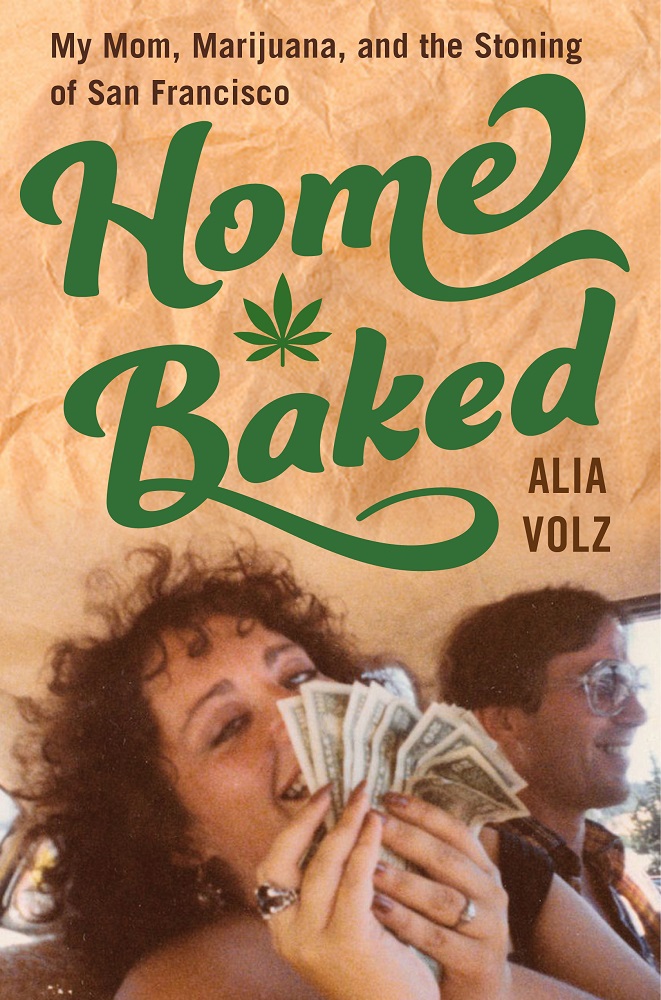 Your mom's brownies transitioned from recreational to palliative during the AIDS epidemic. As a child, how did you cope with the tragedies of the anti-gay movement and the AIDS years?
Your mom's brownies transitioned from recreational to palliative during the AIDS epidemic. As a child, how did you cope with the tragedies of the anti-gay movement and the AIDS years?
Children are resilient. What is childhood if not one adaption after another? My folks never subscribed to the idea that withholding information would protect me from the world. Was it traumatic to see people I loved suffer and die? Of course. If you were not traumatized by the AIDS crisis, you weren't paying attention. Those were formative moments--but not only in a negative way. I learned from the tenderness with which people in the LGBTQ+ community cared for one another, and the bravery of people facing unfathomable loss. It made me a better person. It made me who I am.
Do you have any favorite anecdotes from the "Sticky Fingers" era, either your memories or others'?
The whole book is comprised of favorite anecdotes. And you should see what ended up on the cutting-room floor!
I do enjoy the story of how the signature recipe was invented. My mom had no kitchen skills--none whatsoever. So, when a friend gave her a fledgling DIY bakery, the first thing she did was find someone else to bake. Her best friend, Barb, took over in the kitchen. One night when Barb was up late baking, she forgot to add flour to a round of batter. Realizing her silly mistake, she pulled the undercooked brownies out of the oven and started absently licking the batter from her fingers. Next thing she knew, she was flying. Barb had accidentally discovered a key element of cannabis cooking. Heat makes the plant release THC, increasing potency. But too much heat causes the THC to dissipate. Barb had found the sweet spot. From then on, her brownies were always undercooked, left molten and jiggly in the center. This made for an infamously intense high. Word spread through the city, and within months, my mom and her friends were moving thousands of brownies per weekend. The undercooked brownies left your hands tarred with gooey residue, hence the name Sticky Fingers Brownies.
Did you plan for Home Baked's publication date to be 4/20, or was that a coincidence?
Let's just say I wasn't shocked when my editor suggested it. Once we knew Home Baked would be a spring book, the date was pretty obvious.
Can you imagine living anywhere besides San Francisco?
Definitely. I spent two years in Ecuador, a year in Spain, and a year in Cuba. There were two years in Santa Fe and three years in Los Angeles, as well as shorter stints in other states and other countries. San Francisco is so intertwined with my sense of self that it can be hard to define where I begin and where my hometown ends. When I'm elsewhere, my sense of self becomes clearer. Each time I moved away was supposed to be the last, but something always pulled me back. I needed to finish this book. Maybe now I'll be able to move on.
Home Baked is copiously researched, with 15 pages of resources. Did you write your memories first, then research, confirm and fill in the details?
Home Baked began as an oral history, so the interviews came first--hundreds of hours with dozens of people who were affected by this underground marijuana-brownie business. The stories entrusted to me in the interviews became the backbone of the book. Next, I dove into historical archives to substantiate--or occasionally refute--the wild stories. Most of my interviewees proved to be reliable, which surprised me given the age of the stories and the copious drugs everyone was taking. When inconsistencies did come up, I tried to weave them into the story. I find that kind of complication exciting. What we forget can be as revealing as what we remember.
I didn't decide to reframe Home Baked as a memoir until late in the process, so my childhood memories were the last sections written. Everyone assumes the opposite, but I've always been more interested in exploring the world around me than my own bellybutton. --Cheryl McKeon, bookseller, Market Block Books, Troy, N.Y.
Alia Volz: 'We Were Good Outlaws'
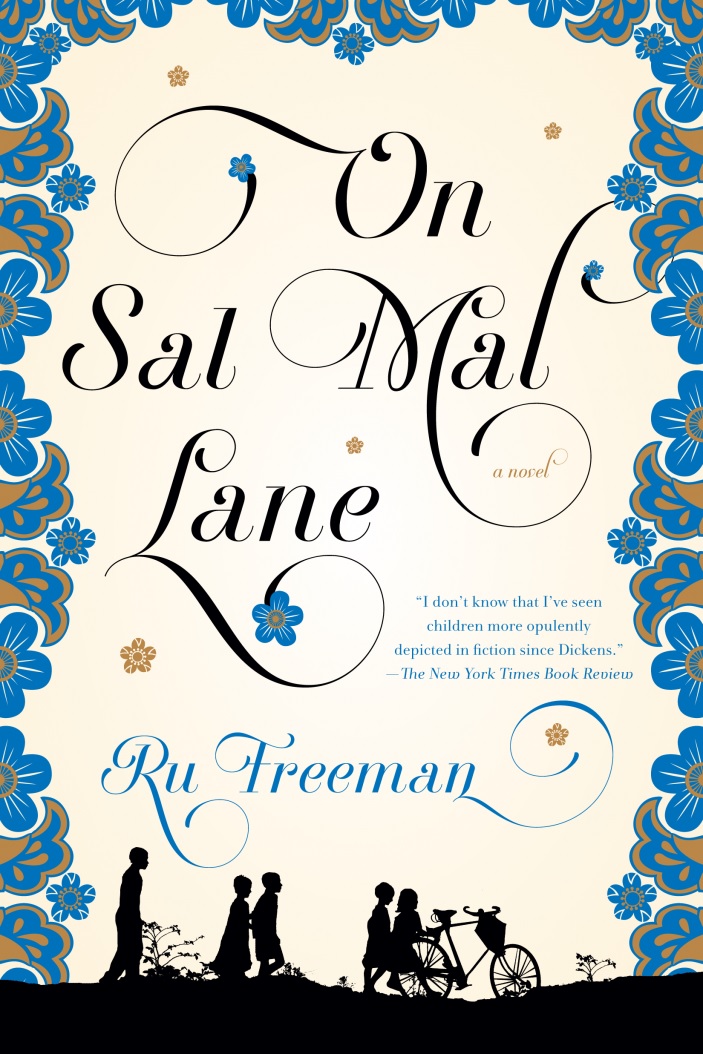 It's been an intriguing journey, exploring Sri Lanka's tumultuous post-independence years through the stories of writers from the South Asian diaspora, beginning with the phenomenally talented Ru Freeman, who lives in the U.S. Her soulful epic On Sal Mal Lane (Graywolf Press, $16) filters life at the cusp of war through the eyes of four spirited children living on a multiethnic street, a gorgeous rendering of how ordinary people summon extraordinary strength when it is required of them.
It's been an intriguing journey, exploring Sri Lanka's tumultuous post-independence years through the stories of writers from the South Asian diaspora, beginning with the phenomenally talented Ru Freeman, who lives in the U.S. Her soulful epic On Sal Mal Lane (Graywolf Press, $16) filters life at the cusp of war through the eyes of four spirited children living on a multiethnic street, a gorgeous rendering of how ordinary people summon extraordinary strength when it is required of them.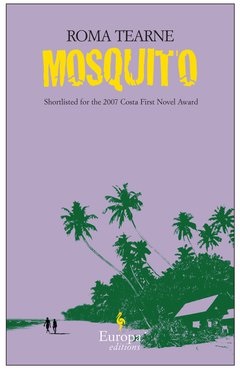 Mosquito (Europa Editions, $16.95) by Roma Tearne features a writer named Theo who returns to his birthplace after years in England and falls in love with a young artist. Theo is enthralled by his homeland, "this beautiful place, with its idyllic landscape of sea and sky and glorious weather." Yet he is fatalistic about Sri Lanka's future, lamenting to his servant, "Has there ever been a country that, once colonized, avoided civil war?"
Mosquito (Europa Editions, $16.95) by Roma Tearne features a writer named Theo who returns to his birthplace after years in England and falls in love with a young artist. Theo is enthralled by his homeland, "this beautiful place, with its idyllic landscape of sea and sky and glorious weather." Yet he is fatalistic about Sri Lanka's future, lamenting to his servant, "Has there ever been a country that, once colonized, avoided civil war?"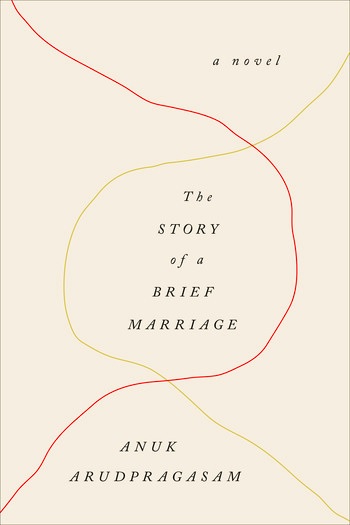 In Aruk Arudpragasam's A Story of a Brief Marriage (Flatiron, $15.99) a young Tamil refugee works at a makeshift hospital in a camp for displaced persons. Arudpragasam captures a single day in his life as war wages on. The landscape is utterly transformed by turmoil but nothing can extinguish the lush, resilient beauty and powerful ancient roots of the country.
In Aruk Arudpragasam's A Story of a Brief Marriage (Flatiron, $15.99) a young Tamil refugee works at a makeshift hospital in a camp for displaced persons. Arudpragasam captures a single day in his life as war wages on. The landscape is utterly transformed by turmoil but nothing can extinguish the lush, resilient beauty and powerful ancient roots of the country.



 Your mom's brownies transitioned from recreational to palliative during the AIDS epidemic. As a child, how did you cope with the tragedies of the anti-gay movement and the AIDS years?
Your mom's brownies transitioned from recreational to palliative during the AIDS epidemic. As a child, how did you cope with the tragedies of the anti-gay movement and the AIDS years?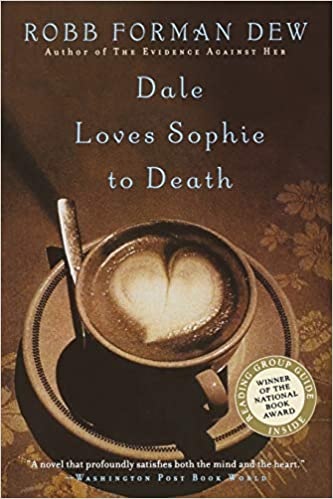 Robb Forman Dew, who wrote fiction, memoirs, essays, criticism and cookbooks, died on May 22 at age 73. Dew was perhaps best known for her debut novel, Dale Loves Sophie to Death, which was published in 1981 and won the American Book Award for a first novel in 1982. The book's title was taken from graffiti on a bridge on a rural road and was one of several of Dew's works that drew on the life and culture of small-town central Ohio. Dew continued to explore domestic life in her following work. Her trilogy--The Evidence Against Her (2001), The Truth of the Matter (2005) and Being Polite to Hitler (2011)--was set in fictional Washburn, Ohio, and was her crowning achievement. Her other works of fiction included The Time of Her Life (1984) and Fortunate Lives (1992). She also published two nonfiction works: A Southern Thanksgiving: Recipes and Musings for a Manageable Feast (1992) and The Family Heart: A Memoir of When Our Son Came Out (1994).
Robb Forman Dew, who wrote fiction, memoirs, essays, criticism and cookbooks, died on May 22 at age 73. Dew was perhaps best known for her debut novel, Dale Loves Sophie to Death, which was published in 1981 and won the American Book Award for a first novel in 1982. The book's title was taken from graffiti on a bridge on a rural road and was one of several of Dew's works that drew on the life and culture of small-town central Ohio. Dew continued to explore domestic life in her following work. Her trilogy--The Evidence Against Her (2001), The Truth of the Matter (2005) and Being Polite to Hitler (2011)--was set in fictional Washburn, Ohio, and was her crowning achievement. Her other works of fiction included The Time of Her Life (1984) and Fortunate Lives (1992). She also published two nonfiction works: A Southern Thanksgiving: Recipes and Musings for a Manageable Feast (1992) and The Family Heart: A Memoir of When Our Son Came Out (1994).